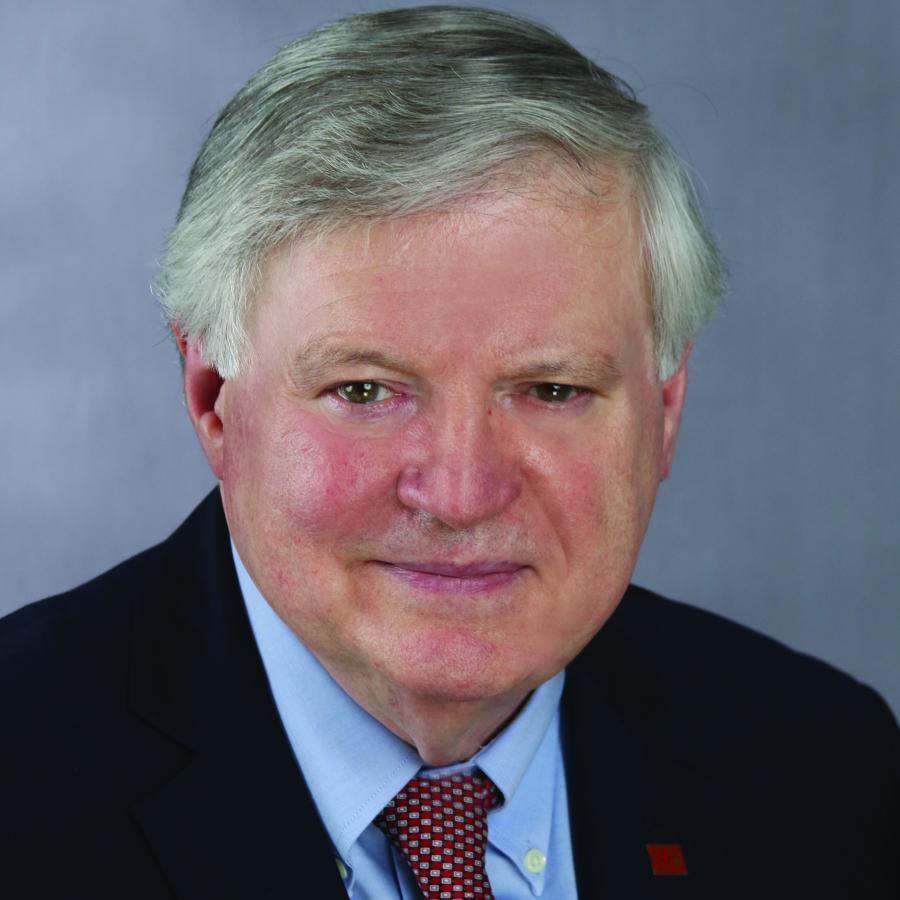
Higher Education

While commercial real estate can be and is often a family business that extends back multiple generations, the expertise and skills to succeed in the business are quite different from the blacksmith of centuries ago, who learned to work metal through familial sources. Today’s commercial real estate professional needs to be on the cutting edge of analysis, valuation, and financial information. The classroom — specifically the CCIM Institute classroom — is a great way to sharpen one’s skills in an extremely competitive marketplace.
And if you’re going to go back to school, you could do worse than seeing Stanley A. Gniazdowski, CCIM, CRE, at the head of the class. President of Realty Concepts Inc. in Guilford, Conn., he has been teaching for CCIM Institute since 1985. This year, Gniazdowski was honored with the Robert Ward Instructor of the Year Award, recognizing his excellence in the classroom. Commercial Investment Real Estate magazine spoke with him about his career, working with up-and-coming CRE professionals, and what to expect in the market as some sense of normalcy returns.
CIRE: Receiving the Robert Ward Instructor of the Year Award is a tremendous achievement. What does it mean to you to be given such an honor?
Stanley A. Gniazdowski, CCIM, CRE: First, it was a surprise and a great honor — I never expected it. It was very special to me since Bob Ward was one of my mentors. Bob was the lead panel member of my instructor charm school. At the end, when I found out I was selected to be an instructor, he challenged me to be one of the best in CCIM Institute. That has been the underlying motive for all these years — to strive to be the best.

CIRE: A CCIM Instructor since 1985, you clearly see value in giving back to the industry. What lessons have you learned in your time teaching up-and-coming professionals?
Gniazdowski: First of all, Listen! Next would be do your research and verify your research. Present your results in a factual manner. Don’t fabricate data; tell it like it is. Continue to learn and be willing to change as technology changes. I have learned the most successful people in this business recognize what they can’t do. They either get the education or hire someone who can complete the task.
CIRE: Is there a particular moment or class or student that will always stick with you from your time in the CCIM classroom?
Gniazdowski: There’s one I see often. It is the student who comes into class the first day intimidated by the volume and depth of course material, and by the last day of class, they get it. Over the years, the best reward is when I get an email or note thanking me for my instruction and that they closed their first transaction or a significant deal due to taking the courses.
CIRE: Specializing in market and investment analysis, what are the major lasting impacts on CRE from the last few years? Is there something unexpected that may have fundamentally changed due to COVID-19?
Gniazdowski: I teach CI 101 and CI 102. The most significant impact has been in 102, our market analysis course. Due to COVID-19, some market trends have accelerated, while other trends and deficiencies have been exposed. It has placed a stronger reliance on market research to fully understand market demand dynamics. One thing that stands out is misreading the impact of COVID-19. The pandemic has been viewed as a carte blanche market trend, when in fact it impacted sectors differently — some as a trend and some as a market fluctuation. Amazon viewed demand during COVID-19 as a trend when in fact it was a fluctuation — hence they built or leased too much space, and now they have excess space.
The pandemic has been viewed as a carte blanche market trend, when in fact it impacted sectors differently — some as a trend and some as a market fluctuation.
CIRE: Working in the Northeast U.S., what opportunities do you see in your area? Where are the smart investors looking in the CRE market?
Gniazdowski: In adversity, there is opportunity. The Northeast is going through tough times. I see some potential areas for growth in adaptive reuse of retail and office space, apartment demand for affordable units, and providing owners and developers advice addressing future development and repositioning properties. This is going to require CRE professionals to provide reliable and defendable market research. Inflation and recession indicators will have to be closely monitored. Any analysis will require frequent updates.
CIRE: Having a few decades of experience, what advice could you offer younger CRE professionals who are coming into the market now? What would you have liked to know back when you were starting out?
Gniazdowski: The best advice I can give younger CRE professionals is to continue educating yourself. Don’t let attaining your CCIM designation be the end. It should be the start of your ongoing CRE education. Attend as may seminars and meetings you can. If you take away one small thing from any event, it was worth it.
What would I have liked to know when I started? That’s easy — the current analytical technology. I wish I had the current tools offered through CCIM Institute’s Site To Do Business. It makes doing market research more reliable and faster. We had no computers, so it all required primary research and lots of time. The new CRE professional does not realize what a distinct advantage they have compared even to 15 years ago. Commercial real estate is no longer an easy entry business. There are two major requirements: 1. a solid real estate education — like our core courses — and 2. a working knowledge of real estate technology, both for financial analysis and market analysis.
Nicholas Leider
Nicholas Leider is senior content editor for Commercial Investment Real Estate. Contact him at nleider@ccim.com.







